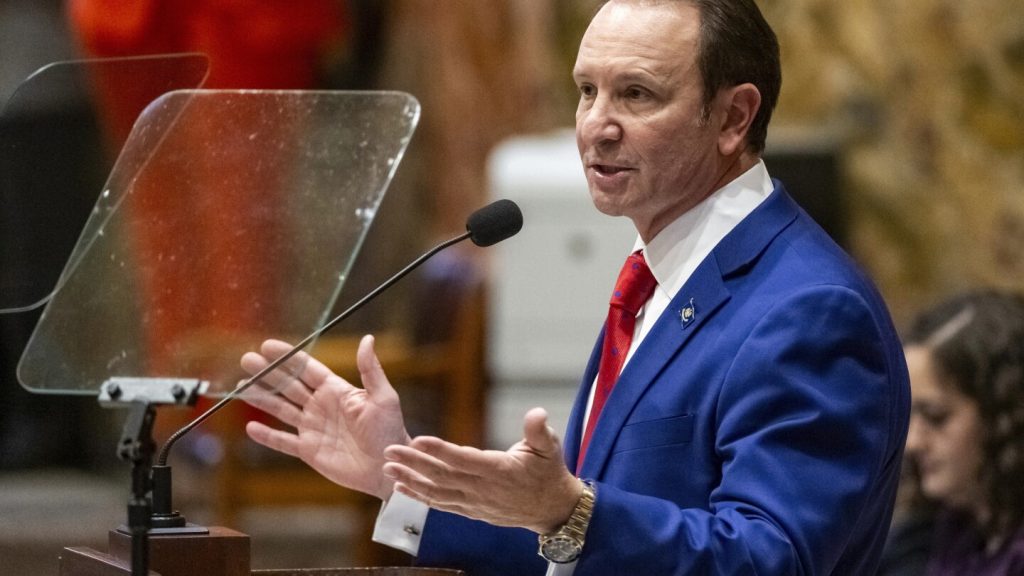Louisiana lawmakers are moving forward with a tax reform package proposed by Republican Governor Jeff Landry in a special legislative session. The package includes bills to flatten the state’s income tax rate and repeal the corporate franchise tax. Despite pushback from Democratic lawmakers and groups representing industries set to lose tax breaks, the bills quickly advanced through committees. One of the bills would introduce a flat individual income tax rate of 3%, while increasing deductions for lower income brackets. The proposed plan has been described as “modestly progressive” compared to the existing tax code.
However, concerns have been raised by Democratic Representative Matthew Willard, who believes that the income tax cuts may not significantly benefit lower-income households. According to a study commissioned by a coalition of nonpartisan policy think tanks, individuals earning between $25,000 to $30,000 annually would only receive around $224 in savings as a result of the proposed reforms. Willard emphasized the need for a more substantial financial assistance for those in lower income brackets, stating that they require more than just a few hundred dollars in savings each year.
Richard Nelson, Secretary of the Department of Revenue and the architect of the governor’s tax reform proposals, defended the plan by emphasizing the importance of creating better job opportunities as a means to improve the financial situation of individuals, particularly those in lower income brackets. If approved, the flat income tax rate could potentially result in a revenue hole of over $1 billion for the state. Governor Landry’s proposal aims to make up for this deficit primarily by expanding sales tax on services and digital goods such as streaming sites, a move that may face challenges in the GOP-dominated Legislature.
The state House of Representatives is expected to vote on the tax reform bills early next week, with discussions centering around the implications of the proposed changes on both individuals and businesses in Louisiana. The debate over the tax reform package highlights the ongoing tension between different political parties and interest groups within the state. Despite the potential benefits of a flattened income tax rate, concerns about the impact on lower-income households and the need for alternative forms of financial assistance remain key points of contention among lawmakers and stakeholders. The outcome of the special legislative session will have significant implications for the state’s tax policies and economic landscape moving forward.


